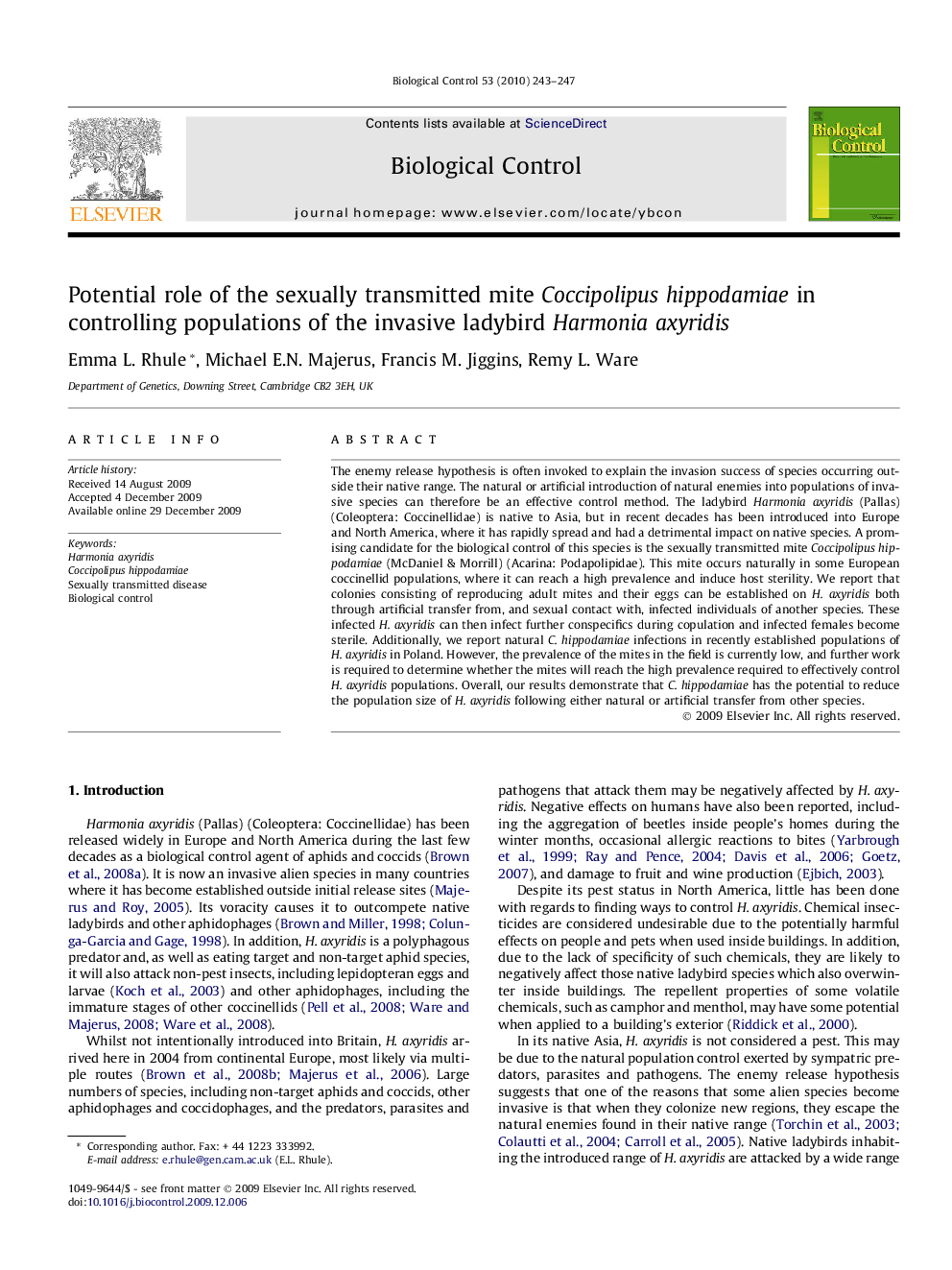| Article ID | Journal | Published Year | Pages | File Type |
|---|---|---|---|---|
| 4504484 | Biological Control | 2010 | 5 Pages |
The enemy release hypothesis is often invoked to explain the invasion success of species occurring outside their native range. The natural or artificial introduction of natural enemies into populations of invasive species can therefore be an effective control method. The ladybird Harmonia axyridis (Pallas) (Coleoptera: Coccinellidae) is native to Asia, but in recent decades has been introduced into Europe and North America, where it has rapidly spread and had a detrimental impact on native species. A promising candidate for the biological control of this species is the sexually transmitted mite Coccipolipus hippodamiae (McDaniel & Morrill) (Acarina: Podapolipidae). This mite occurs naturally in some European coccinellid populations, where it can reach a high prevalence and induce host sterility. We report that colonies consisting of reproducing adult mites and their eggs can be established on H. axyridis both through artificial transfer from, and sexual contact with, infected individuals of another species. These infected H. axyridis can then infect further conspecifics during copulation and infected females become sterile. Additionally, we report natural C. hippodamiae infections in recently established populations of H. axyridis in Poland. However, the prevalence of the mites in the field is currently low, and further work is required to determine whether the mites will reach the high prevalence required to effectively control H. axyridis populations. Overall, our results demonstrate that C. hippodamiae has the potential to reduce the population size of H. axyridis following either natural or artificial transfer from other species.
